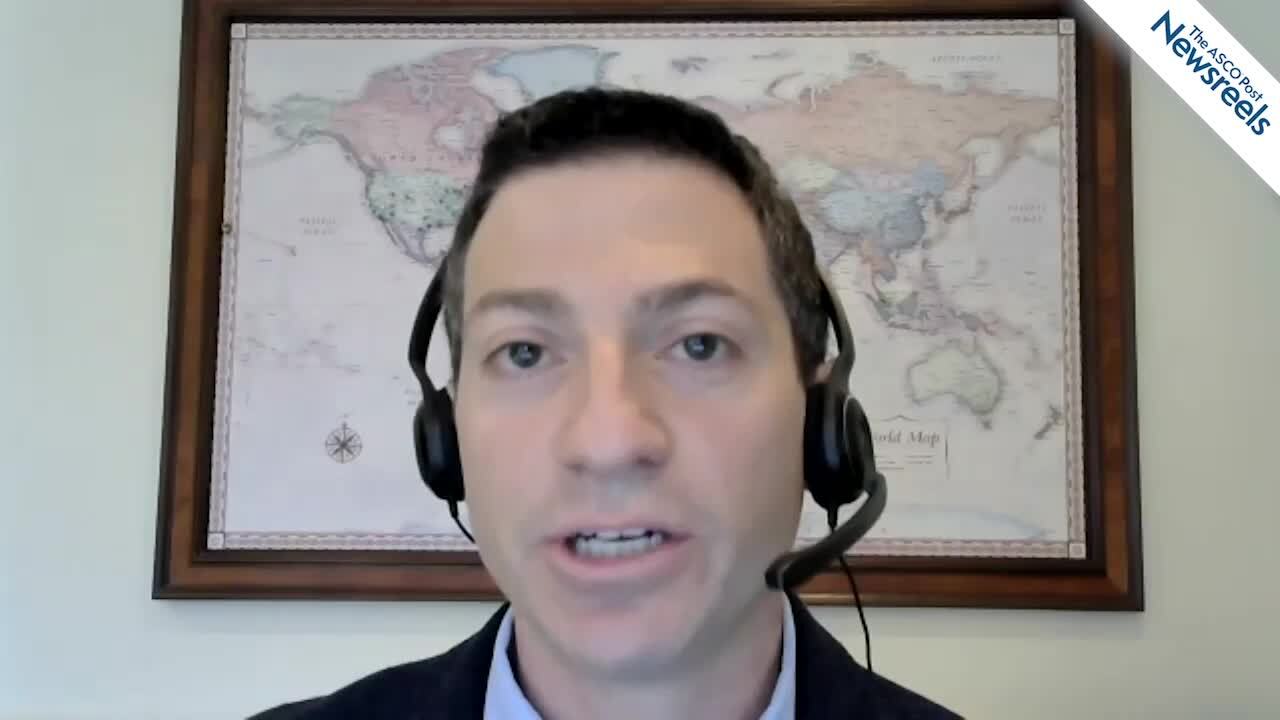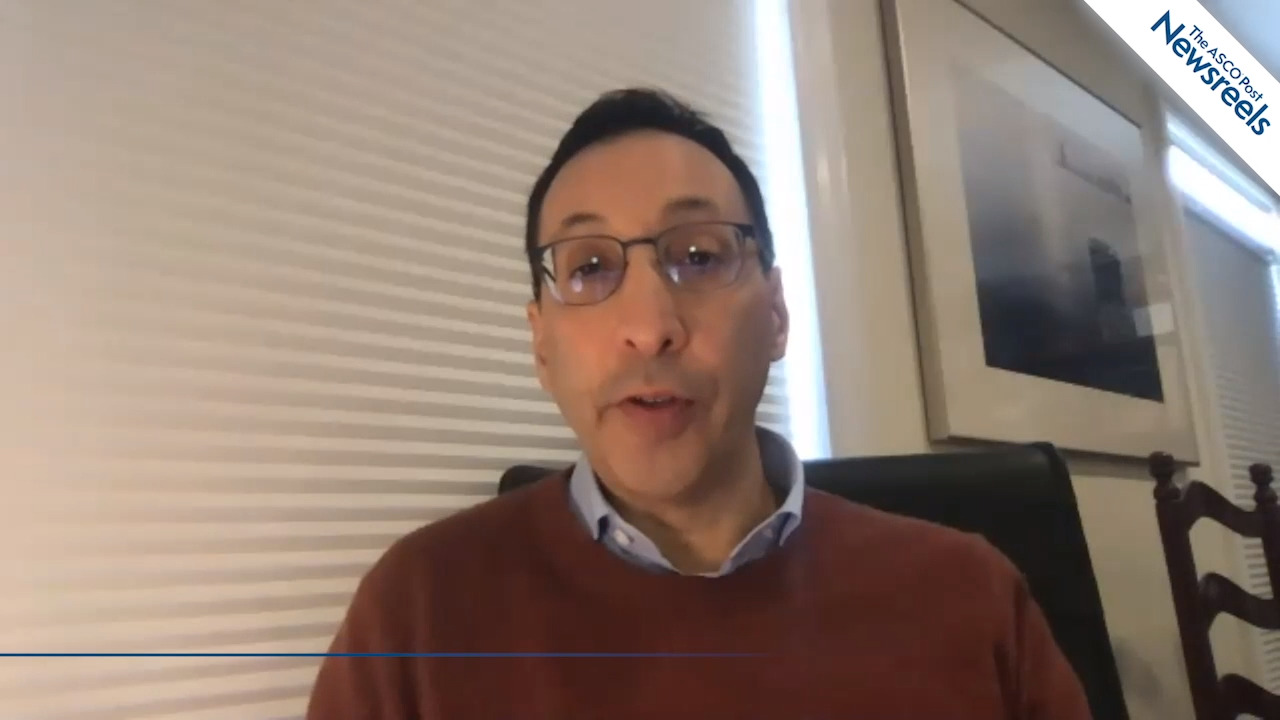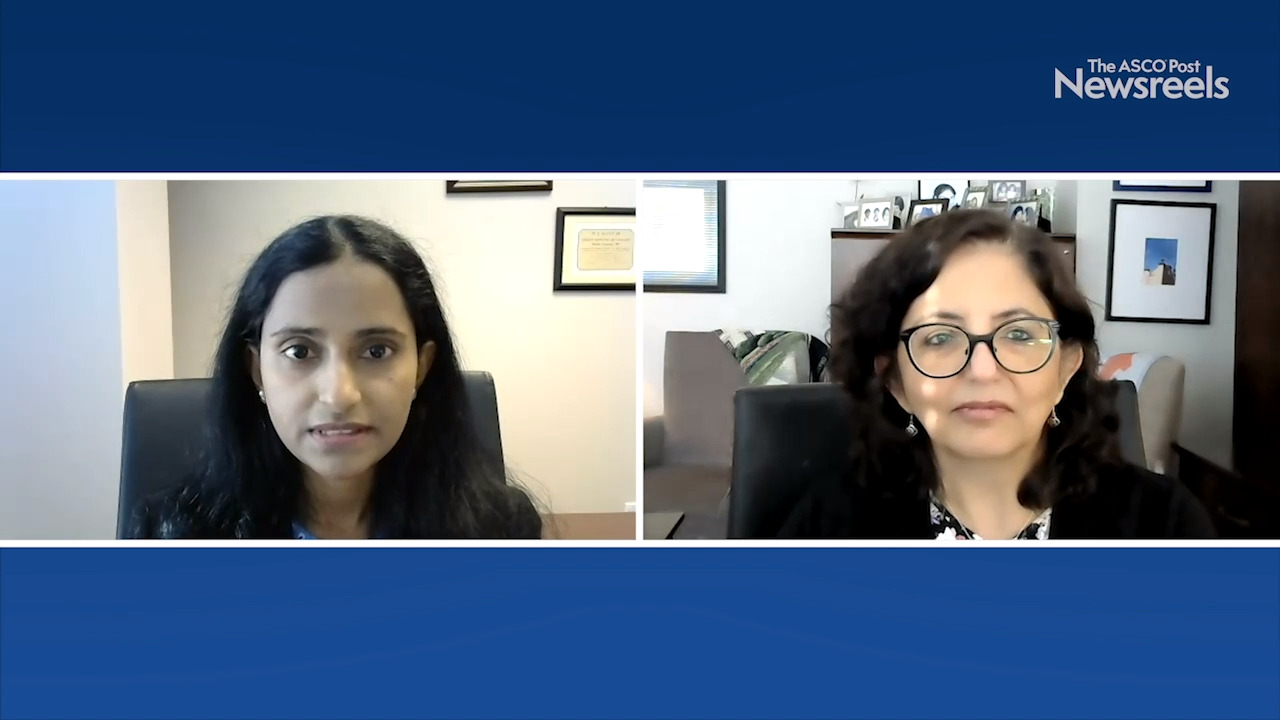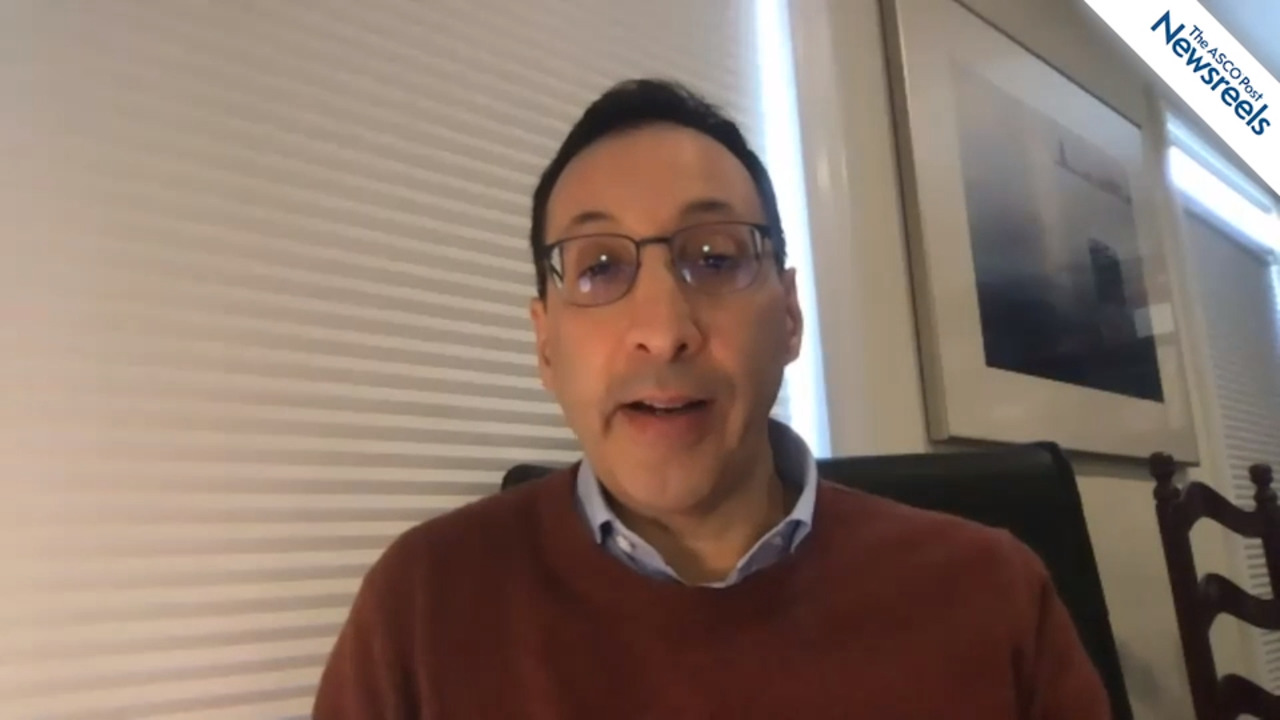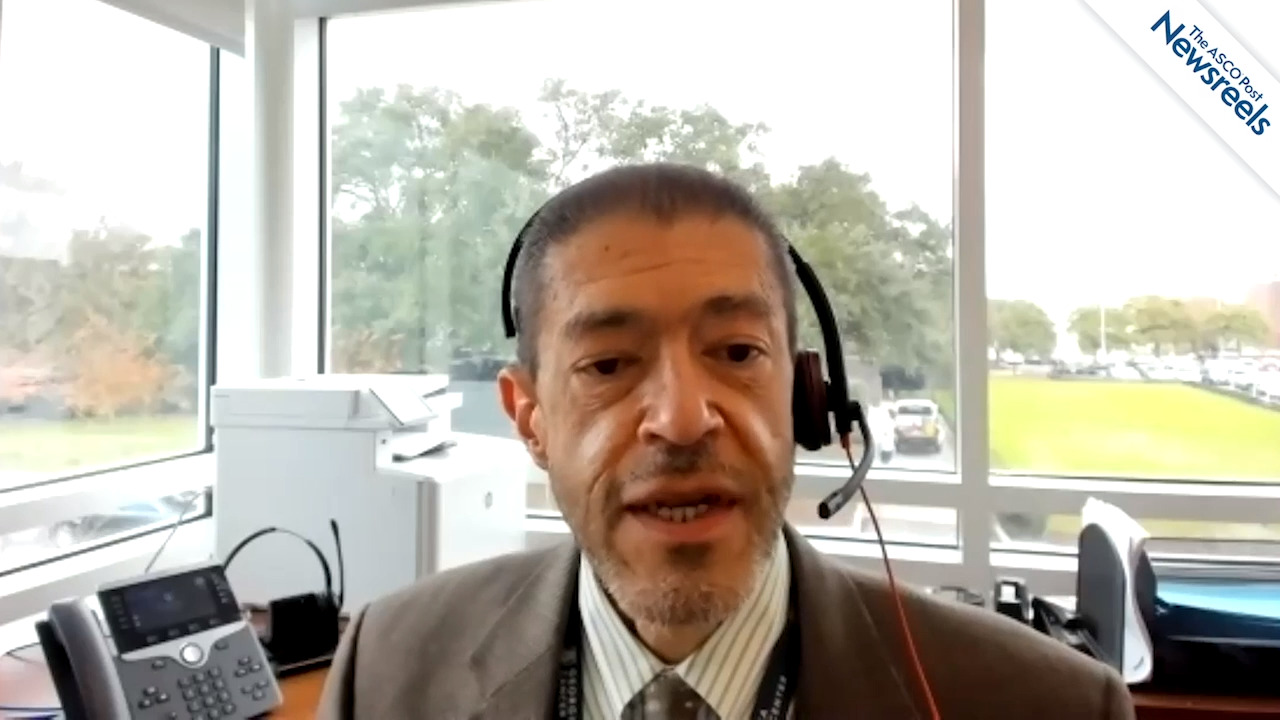Andrew D. Zelenetz, MD, PhD, on Mantle Cell Lymphoma: Expert Perspective on Key Clinical Trials
2020 ASH Annual Meeting & Exposition
Andrew D. Zelenetz, MD, PhD, of Memorial Sloan Kettering Cancer Center, offers his expert views on five treatment studies in mantle cell lymphoma focusing on the next-generation BTK inhibitor LOXO-305; lisocabtagene maraleucel; minimal residual disease monitoring following autologous stem cell transplantation with or without rituximab maintenance; the antibody-drug conjugate VLS-101; and venetoclax, lenalidomide, and rituximab (Abstracts 117, 118, 120, 121, 122).
The ASCO Post Staff
Matthew S. Davids, MD, of Dana-Farber Cancer Institute, summarizes three key studies from a session he co-moderated on ibrutinib plus venetoclax for first-line treatment of patients with chronic lymphocytic leukemia (CLL) and small lymphocytic lymphoma (SLL), long-term responses to these agents for relapsed and refractory CLL, and undetectable minimal residual disease following fixed-duration treatment with venetoclax and rituximab for CLL (Abstracts 123, 124, and 125).
The ASCO Post Staff
Steven M. Horwitz, MD, of Memorial Sloan Kettering Cancer Center, discusses phase II data from the Primo trial, which support continued evaluation of duvelisib as a treatment option for relapsed or refractory peripheral T-cell lymphoma due to consistent response rates (Abstract 44).
The ASCO Post Staff
Smita Bhatia, MD, MPH, and Radhika Gangaraju, MD, both of the Institute for Cancer Outcomes and Survivorship, University of Alabama at Birmingham, discuss findings that showed survivors of bone marrow transplants are at a 7- to 12-fold higher risk of coronary heart disease than a sibling comparison group. They recommend aggressive management of cardiovascular risk factors to prevent morbidity from heart disease in this patient population (Abstract 73).
The ASCO Post Staff
Steven M. Horwitz, MD, of Memorial Sloan Kettering Cancer Center, discusses data from the largest multicenter retrospective analysis of allogeneic hematopoietic transplantation, which supports its curative potential in patients with mature T-cell lymphoma, a group marked by poor survival and limited treatment options (Abstract 41).
The ASCO Post Staff
Jorge E. Cortes, MD, of the Georgia Cancer Center at Augusta University, reviews four important studies of treatment advances in chronic myeloid leukemia (CML): nilotinib vs dasatinib in newly diagnosed disease; final 5-year results from the BFORE trial on bosutinib vs imatinib for chronic phase (CP) CML; data from the OPTIC trial on ponatinib for CP-CML; and a novel class of mutated cancer-related genes associated with the Philadelphia translocation (Abstracts 45, 46, 48, 49).
